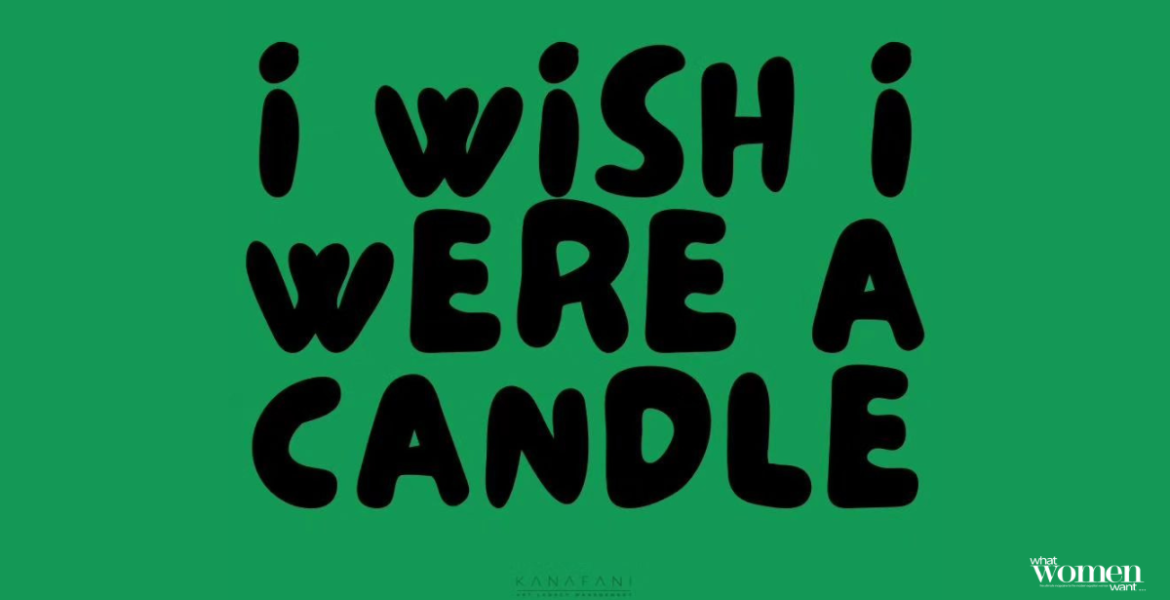“As you go home, to your own home, think of others.
Don’t forget those who live in tents.
As you sleep and count the planets, think of others.
There are people who have no place to sleep.
As you liberate yourself with metaphors, think of others,
those who have lost their right to speak.
And as you think of distant others,
think of yourself and say,
‘I wish I were a candle in the darkness.’”
These brilliant words by the Palestinian poet Mahmoud Darwish are the inspiration behind the name of the exhibition ‘I Wish I Were A Candle’. The collective exhibition is a powerful testament to the resilience of the Palestinian people. ArtTalks is hosting the exhibition and showcasing the work of over 40 Egyptian and Palestinian artists. The show is a fundraiser for students who escaped the genocide in Gaza and are now living in Egypt. Over 100 artworks are on display, with proceeds benefiting the students.
The emotional exhibition invites viewers to immerse themselves in the Palestinian struggle. It allows you to look at their stories through a purely humanitarian lens. Through different mediums and art styles, this exhibition breaks barriers and sheds light on the resilience of Palestinians. Fatenn Kanafani, co-founder of ArtTalks, said, “I am truly impressed by the young Egyptian artists! They went out of their comfort zone and produced work that is so powerful and innovative.” She added, “What was also touching are the two artists from Gaza who are now in Egypt and had to come and paint in our gallery because they have no place to work.”
A dive into the exhibition:
 Walking through the gallery, one is immediately struck by many different emotions. From heart-shattering paintings to thought-provoking installations, the artists are crying out for justice. Every piece is a harsh reminder of the daily struggles of Palestinians. Omar Zaki, an Egyptian artist participating in the exhibition, said, “I hope that people will realize that Palestinians are peaceful people, and the land is undoubtedly theirs.”
Walking through the gallery, one is immediately struck by many different emotions. From heart-shattering paintings to thought-provoking installations, the artists are crying out for justice. Every piece is a harsh reminder of the daily struggles of Palestinians. Omar Zaki, an Egyptian artist participating in the exhibition, said, “I hope that people will realize that Palestinians are peaceful people, and the land is undoubtedly theirs.”
Central to the exhibition are the voices of Palestinian artists. Their works serve as a powerful form of resistance and expression in the face of oppression. Through their art, they challenge stereotypes, and reclaim narratives. They assert their right to exist in a world that often seeks to silence them. Ahmed Abunada, a Palestinian artist featured in the exhibition, said, “What inspires my art is what I have lived through during the war. The tragedy and destruction I saw made me want to share my thoughts.” He noted proudly, “This is my work and my duty as a Palestinian artist who resists through his art and his paintings.”
Abunada beautifully said, “The message that I convey with my art is that we are a people who have suffered from the ugliest and most despicable crimes on earth, and yet we are a wonderful, beautiful, patient people. We are creative people, and among us are doctors, artists, engineers, teachers, poets, writers, and all of these people are targeted by the occupation because they constitute the civilizational, cultural, and development image of Palestine, but in the end, we do not surrender and we do not die. We exist, and we are the rightful owners of the land.”
Art as a tool of resistance:
Art has always been a powerful tool of resistance for Palestinians. It enables them to express their identity, and advocate for justice. Abunada described, “Art has soft power. It is a mean of resistance because it is very influential on the public. It reaches out in a way different from other means.Art requires the use of the mind and emotions to uncover what is in the work of art.” He explained, “It is very important that as a Palestinian artist who lived through the genocide in Gaza, I create art that addresses my issue and clarifies the reality of what is happening in Gaza and Palestine as a whole.”
Art not only serves as a means of coping with trauma and preserving cultural heritage but also fosters international solidarity and collaboration. Yassin, an Egyptian painter whose artwork documented the horrific scenes of the war, stated, “Before I am an artist, I am an Egyptian man! The genocide happening in Palestine deeply affected me. I wanted to express my feelings about it, in any sort of way.” Zaki added, “People are influenced by the artwork and are affected by the artist’s feelings. Then they begin to ask about what is behind the artwork and learn about the issue more, and then it has an impact, even if it is simple, in spreading the truth and providing assistance.”


